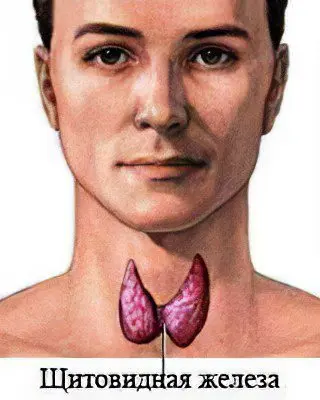Contents
What is autoimmune thyroiditis?

Autoimmune thyroiditis is a chronic thyroid disease characterized by autoimmune inflammation that often results in hypothyroidism.
In addition, autoimmune thyroiditis in our time is considered the most common of the diseases of the thyroid gland. According to data published in the Medical Newspaper (No. 73, September 2005), approximately 50% of all women aged 30 to 50 suffer from autoimmune thyroiditis. This figure in some other regions reaches 85%. Among patients with endocrine diseases who seek medical help, almost half suffer from autoimmune thyroiditis, both on its own and accompanied by other diseases.
As statistics show, in 50% of cases, relatives of patients suffering from autoimmune thyroiditis have circulating antibodies to the thyroid gland. Or, other autoimmune diseases are observed in the same family, such as pernicious anemia, autoimmune primary hypocorticism, chronic autoimmune hepatitis, type I diabetes mellitus, vitiligo, rheumatoid arthritis, etc.
Symptoms of autoimmune thyroiditis
Is it worth talking about those patients suffering from autoimmune thyroiditis, but with preserved gland function? Such patients practically do not complain about their health. But still, some symptoms of autoimmune thyroiditis are a feeling of discomfort in the neck in front, a person experiences discomfort when wearing a high collar, scarf or scarf. And quite the opposite – when there is hypothyroidism.
Appearance of the patient. What are the distinguishing features of a sick person with autoimmune thyroiditis and hypothyroidism?
By the appearance of such a patient, a qualified specialist will recognize immediately – at the first appearance of him in the office.
Typically, such a patient has slow movements. The complexion is pale with a yellowish tint, the face is puffy, the features are rough, the eyelids are swollen. On a pale face – an unhealthy blush on the cheekbones and the tip of the nose in the form of red spots.
Hair is sparse and fragile, often falls out in patches, resulting in bald patches. Hair loss is observed not only on the head, but also in the armpits and pubic area. There is also a symptom of Hertog, that is, hair loss of the outer third of the eyebrows.
When talking, there is a weak facial expression, the face practically does not change expression. A person speaks slowly, picks up words for a long time and hardly remembers the names of phenomena and objects. He speaks incomprehensibly, as if “he took porridge in his mouth.” Such a violation in speech occurs due to swelling of the tongue. The tongue becomes large, thick, teeth marks remain on the lateral surfaces. There is also swelling of the mucous membranes of the nose, the patient has to breathe through the mouth. Quite often he suffers from shortness of breath. The skin of such a patient is dry and pale, its elasticity is reduced, it has a yellowish tint, sometimes forms rough folds. When touched, the skin is rough and cold. Dry plaques (xerosis) and cracks on the elbows and soles are possible.
Complaints. Typically, the patient complains of severe fatigue, poor performance and a constant desire to sleep. It is worth paying attention to memory loss and a change in voice (it becomes hoarse).
Often the patient complains of the impossibility of independent stool, one has to resort to laxatives and enemas.
In women, the menstrual cycle is often disturbed. Periods are late for several days or weeks. Menstruation is scanty. There are uterine bleeding. Such menstrual irregularities can cause the development of amenorrhea – the complete cessation of menstruation. As a result, infertility develops. Some patients begin to worry about discharge from the nipples of the mammary gland, mastopathy.
Men are concerned about the decrease in sexual desire and impotence.
A common symptom of thyroiditis is dry mouth in the morning without much thirst. In the case when a child suffers from this disease, he usually lags noticeably behind his peers in growth and mental development. From all of the above, we can conclude that the complaints and appearance of patients with autoimmune thyroiditis and hypothyroidism are quite eloquent.
Causes of postpartum autoimmune thyroiditis
The cause of postpartum thyroiditis is excessive reactivation of the immune system after natural gestational immunosuppression (rebound phenomenon), which leads to destructive autoimmune thyroiditis in individuals with a predisposition (AT-TPO carriers).
The factors that provoke painless (“silent”) thyroiditis are unknown. This type of destructive autoimmune thyroiditis is a complete analogue of postpartum. However, it develops regardless of pregnancy. The reason for the development of cytokine-induced thyroiditis may be the appointment of interferon preparations to the patient. However, there was no direct temporal relationship between the development of thyroiditis and the duration of interferon therapy. Thyroiditis can develop both at the beginning of treatment with this drug, and after it – after a month or more.
Treatment
Specific therapy for autoimmune thyroiditis has not been developed. Despite modern advances in medicine, endocrinology does not yet have effective and safe methods for correcting autoimmune thyroid pathology, in which the process would not progress to hypothyroidism.









